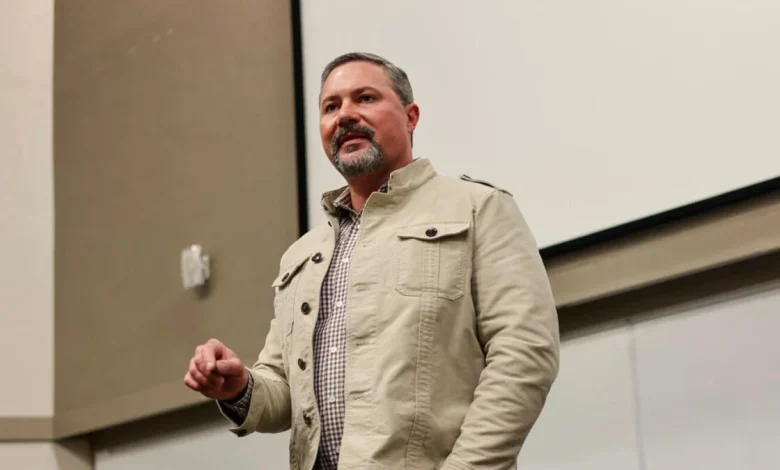Former Alabama coach Nick Saban and Texas billionaire Cody Campbell are leading a bold college sports reform effort, aiming to reshape governance, athlete compensation, and competitive balance under Trump’s backing.

In a significant move that could reshape the future of college athletics, former Alabama football coach Nick Saban and Texas billionaire Cody Campbell have taken the lead on a new federal commission aimed at reforming the way college sports operate. Backed by former President Donald Trump, the commission intends to address major issues such as athlete compensation, governance, and competitive balance. These changes come at a time when the landscape of college sports is shifting rapidly, and the call for reform is growing louder than ever.
The Current Landscape of College Sports
College sports in America, particularly football and basketball, have been at the center of a longstanding debate over the role of student-athletes. Traditionally, college athletes have been considered amateurs, with their compensation limited to scholarships and some modest benefits. However, recent changes—most notably the introduction of NIL (Name, Image, and Likeness) deals—have fundamentally altered this system. College athletes can now profit from their own likeness, leading to a significant influx of money into the college sports world.
However, this new financial reality has also created challenges. Some universities have more resources than others, leading to disparities in the compensation athletes can receive. At the same time, many believe the current system is still not sustainable or fair for the athletes themselves. Enter Nick Saban and Cody Campbell.
The Role of Nick Saban
Nick Saban is no stranger to leadership in college sports. Over his two-decade-long tenure as the head coach at Alabama, Saban built a dynasty, winning seven national championships. His deep understanding of the college football system and his extensive experience with recruitment and athlete management give him a unique perspective on the needs for reform.
Saban has long been an advocate for changing the way college football operates. He has voiced concerns about the lack of competitive balance, where wealthier programs with larger budgets have a distinct advantage over smaller schools. Saban has also been vocal about the negative effects that unrestricted NIL deals could have on the sport. While he recognizes the need to compensate athletes fairly, Saban believes that NIL has created a situation where the sport risks losing its identity as a collegiate pursuit.
Through his leadership in this reform commission, Saban hopes to create a more equitable model. His focus has been on finding a way to compensate athletes without making them employees of the university, something that would fundamentally alter the college sports model. Saban envisions a system where all schools can invest in their athletes fairly, without creating a financial arms race that only benefits the most wealthy programs.
Cody Campbell’s Involvement
Cody Campbell, a Texas billionaire and businessman, brings a different perspective to the table. As the chairman of the Texas Tech Board of Regents and a significant player in the NIL landscape, Campbell has seen firsthand the financial disparities that exist among college athletic programs. He is deeply involved in NIL collectives, which allow wealthy alumni and donors to provide compensation to athletes, but has expressed concerns about how these systems disproportionately benefit larger programs, leaving smaller schools at a disadvantage.
Campbell’s experience with NIL issues puts him in a prime position to address these challenges. He has advocated for a system that preserves the competitive balance of college sports, especially for schools that don’t have the same financial backing as programs in power conferences. His efforts are aimed at creating a model where the wealth disparity does not completely dominate the playing field, ensuring that smaller programs can still compete at a high level and that athletes across all sports are compensated in a fair and structured manner.
The Role of Trump’s Backing
Former President Donald Trump’s involvement in the commission adds another layer of complexity to the conversation. Trump has long been a supporter of college sports, and his backing of this initiative highlights the political ramifications of the reform movement. There is talk that Trump could issue an executive order to regulate NIL deals, establishing nationwide standards to prevent the state-by-state patchwork of laws that currently govern NIL transactions. This could provide much-needed clarity for schools, athletes, and collectives, ensuring that NIL deals are handled fairly and consistently across the country.
However, Trump’s involvement has also drawn criticism, particularly from those who fear that his political influence could steer the commission’s reforms in a direction that benefits larger, wealthier schools, or that it could introduce more political gridlock into a system that needs clear, unbiased leadership. Still, with the backing of both Trump and figures like Saban and Campbell, the commission has the potential to drive real change in the world of college athletics.
The Commission’s Focus Areas
The commission’s work will be concentrated on several key areas of reform:
- Athlete Compensation: One of the most pressing issues in college sports today is how to fairly compensate athletes. While NIL deals have opened new opportunities for athletes to profit, there is still no uniform system for how compensation works. The commission aims to create a fair system that compensates athletes while maintaining the integrity of college sports as an amateur endeavor.
- Governance: College sports governance is fragmented, with different schools and conferences following different rules and regulations. The commission will work to create a unified regulatory framework that can address the disparities in how different programs operate. This will also include ensuring that NCAA rules are enforced fairly and consistently, preventing schools from exploiting loopholes to gain an unfair advantage.
- Competitive Balance: Saban and Campbell are particularly concerned about the growing financial divide in college sports. Larger programs with more resources can attract the best talent, while smaller programs struggle to compete. The commission will work on strategies to level the playing field, ensuring that every program has an opportunity to compete fairly.
- Preservation of Non-Revenue Sports: The commission also wants to make sure that smaller, non-revenue-generating sports aren’t left behind in the reform process. Olympic sports, in particular, have long been a cornerstone of college athletics, and Saban and Campbell are committed to ensuring that these programs continue to thrive alongside the revenue-generating sports like football and basketball.
Potential Challenges
Despite the commission’s noble goals, there are several challenges ahead. For one, many schools have entrenched interests that could resist the proposed reforms. Larger programs and wealthy donors may be unwilling to give up the advantages they currently hold in terms of resources and recruitment. Additionally, the legal landscape surrounding NIL is still murky, and it’s unclear how the commission’s reforms will interact with existing state and federal laws.
Moreover, there’s the challenge of creating a system that is fair to athletes but still maintains the “amateur” status that many believe is crucial to the integrity of college sports. Striking a balance between these two competing interests will be one of the commission’s greatest challenges.
The Path Forward
As the commission continues its work, it remains to be seen how the reform efforts will unfold. Will they successfully create a system that ensures fair compensation for athletes, restores competitive balance, and preserves the essence of college sports? Or will they face resistance from schools, boosters, and other stakeholders who are heavily invested in the current system?
What is clear, however, is that Nick Saban, Cody Campbell, and the commission have an opportunity to significantly impact the future of college athletics. With the backing of former President Trump, they have the political clout and resources to make their vision a reality. But whether that vision can be implemented in a way that benefits all stakeholders—athletes, universities, fans, and communities—remains to be seen.
As the commission moves forward, the eyes of the college sports world will be watching closely. The decisions made in the coming months will shape the future of collegiate athletics for generations to come, and Saban and Campbell’s leadership could prove to be the catalyst for a much-needed transformation in college sports.









